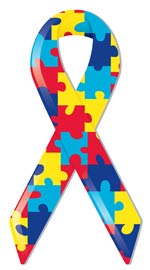Congressional Autism Caucus Releases Report on Federal Autism-Related Efforts
January 10, 2011

|
| Download |
|
|
U.S. Representatives Mike Doyle (PA-14) and Chris Smith (NJ-4), released a report describing autism-related research and service activities carried out by the US Government over the last four years. This report, which was required by the Combating Autism Act (CAA) of 2006, describes action that the Federal Government has undertaken since enactment of the CAA - primarily in the fields of research and services. The report highlights the positive impact of the American Recovery and Reinvestment Act and noted the effectiveness of behavioral health treatments for children with autism.
A summary of the CDC-related "Learn the Signs. Act Early" Campaign can be found on pages 12, 13, and 15, and the summary of LEND efforts can be found on pages 18-21.
Washington, DC - January 7, 2011 - U.S. Representatives Mike Doyle (PA-14) and Chris Smith (NJ-4), released a report today describing autism-related research and service activities carried out by the US Government over the last four years.
"I want to commend HHS and particularly the Office of Autism Research Coordination at the National Institutes of Health for providing Congress with this very helpful information," Congressman Doyle said today in releasing this report. "Congress must reauthorize the Combating Autism Act to take its research and surveillance insights and translate them into improved outcomes for persons with autism and their families."
"Congress has a responsibility not only to pass needed legislation, but to follow up with the appropriate review, oversight, and - if necessary - additional legislative action," Congressman Doyle observed. "This report provides a lot of helpful new information, and we will definitely use those insights in drafting legislation to reauthorize the Combating Autism Act, which Congressman Smith and I are working on and hope to reintroduce very soon."
"The Federal government has an obligation to help individuals on the autism spectrum and their families," Congressman Doyle added. "We plan to build on that progress in research and services to ensure that individuals with autism and their families get the support they need. The Congressional Autism Caucus has been working successfully for 10 years to expand federal research on Autism Spectrum Disorders and provide the necessary assistance to individuals with autism and their families,"
"With the beginning of the 112th Congress, the Congressional Autism Caucus has renewed our pledge to people with autism that their government will provide them with the assistance they need to fully meet their potential," Doyle said. "We will be holding a briefing later this month with HHS to discuss the findings of this report."
"Finally," Congressman Doyle added, "I want to commend Representative Frank Pallone, Chairman of the House Energy and Commerce Committee's Subcommittee on Health in the 111th Congress, for helping me bird-dog this report and making sure Congress received this report on time."
This report, which was required by the Combating Autism Act (CAA) of 2006, describes action that the Federal Government has undertaken since enactment of the CAA - primarily in the fields of research and services. The report highlights the positive impact of the American Recovery and Reinvestment Act (often referred to as ARRA or the "stimulus" bill). The report also noted the effectiveness of behavioral health treatments for children with autism, which Congressman Doyle succeeded in ensuring were covered by insurance in the recent health care reform law.
One out of every 150 children in the United States has an Autism Spectrum Disorder. The range and severity of symptoms of autism vary from case to case, but symptoms often include difficulties in communicating and interacting with other individuals and exhibiting repetitive behaviors and intense interests in specific subjects. The care involved in treating these symptoms often requires hours of intensive therapy every week - regimens that are often inaccessible or unaffordable for many families. With early intervention and concentrated treatment, the symptoms of Autism Spectrum Disorder can be mitigated, enabling individuals with autism and their families to participate fully in their communities.
The full PDF report is available at right and online here.







